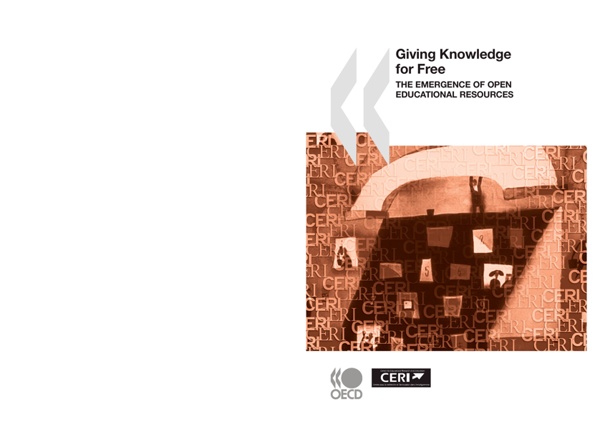



Why Give Knowledge Away for Free? The Case for Open Educational Resources "At the moment the OER movement is taking its first steps beyond a culture focused around "my site" towards a culture that is focused around "our commons." Most people who create OER sites have a sense of who they expect their users to be and what needs those users have. This is all to the good, if it is not to the exclusion of those users whose needs--or innovations--we have totally failed to imagine." Towards a Global Learning Commons An apparently extraordinary trend is emerging. Higher education is facing a number of challenges: globalisation, an aging society, growing competition between higher educational institutions both nationally and internationally, and rapid technological development. OER are a fascinating technological development and, potentially, a major educational tool. OER projects can expand access to learning for everyone, but most of all, for non-traditional groups of students. What are OER? Who is Using and Producing OER? Figure 1: Categories of OER Providers
Home | Professional Development Online | ASCD PD Online™ ADDITIONAL TERMS OF USE Welcome to PD Online™ ("Site"), an Interactive, On-Demand Professional Development Web-Based Platform for Educators ("Service"). The Site and Service (collectively, the "Site") are operated by the Association for Supervision and Curriculum Development ("ASCD"). 2. All content on this Site and available through the Service, including designs, text, graphics, images, video, information, applications, software, music, sound and other files, and their selection and arrangement (the "Site Content"), are the proprietary property of ASCD, its users or its licensors with all rights reserved. When you post User Content to the Site, you authorize and direct us to make such copies thereof as we deem necessary in order to facilitate the posting and storage of the User Content on the Site. 3. 4. 5. As a subscriber, the Site is available for your non-commercial use only. 7. 11. 13.
Action research and evaluation on line (web) To subscribe to the course offered twice a year by email, contact Bob Dick and ask for a subscription form. Areol, action research and evaluation on line, is a 14-week public course offered twice a year as a public service by ALARA, the Action Learning Action Research Association Inc. Individual sessions are briefly described below. (For a more detailed description see the fourth orientation file: click here) There are four orientation sessions. Introduction 1: required commitment Introduction 2: orientation Introduction 3: forming learning groups Introduction 4: program overview Sessions 1 and 2 provide some context. Session 1: Examples of action-research-like processes Session 2: The change process and action research Some action research is done more for the action than the research. Session 3: Entry and contracting Session 4: Participation and involvement Session 5: Achieving participation Session 6: Achieving rigour Sessions 7 to 9 introduce the topic of process design.